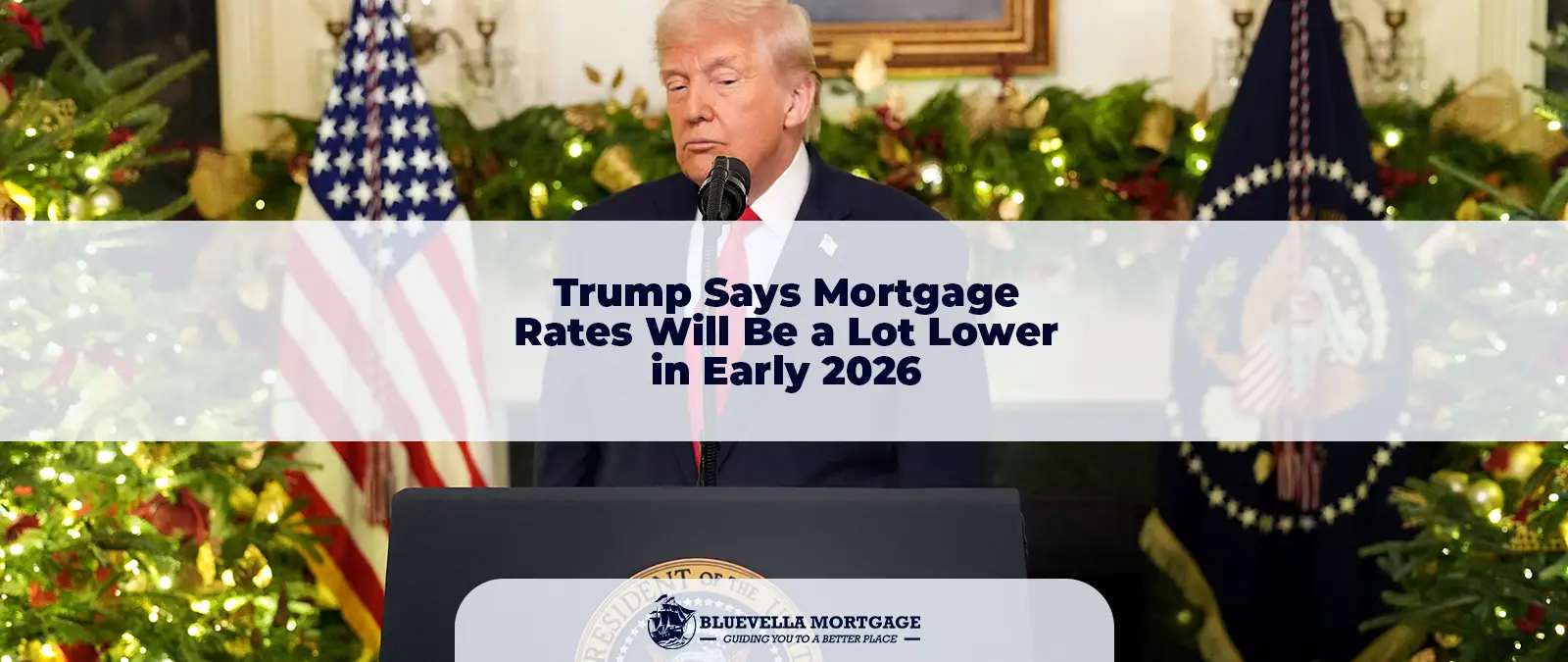
Top 5 Mortgage Lenders You Should Know in 2026
Understanding Mortgage Lending A mortgage is a loan specifically designed for purchasing real estate, wherein the property itself serves as collateral. For individuals seeking to

Understanding Mortgage Lending A mortgage is a loan specifically designed for purchasing real estate, wherein the property itself serves as collateral. For individuals seeking to

Introduction to Bluevella Mortgage Founded with the vision of revolutionizing the mortgage industry, Bluevella Mortgage has quickly established itself as a formidable player in this

Current Mortgage Rate Trends The mortgage market has recently experienced a notable shift, with rates reaching a two-month low following a modest drop in January

Introduction As we approach the year 2026, the current climate of mortgage rates is experiencing a notable transformation, witnessing a significant decline that has brought

2026 Loan limits refer to the maximum amount of money that can be borrowed under certain mortgage programs, such as conforming loans (Fannie Mae/Freddie Mac),

Introduction to Bluevella Mortgage In the competitive landscape of the mortgage industry, Bluevella Mortgage emerges as a leading player committed to the success of loan

Introduction to Trump’s Statement Recently, former President Donald Trump expressed his belief that mortgage rates would decrease by early 2026. This prediction was made during

Introduction to the Housing Market in 2026 As we approach 2026, the housing market presents itself as a significant landscape for potential homebuyers. Economic indicators

Investing in U.S. real estate is a dream for many foreign nationals seeking financial growth, stability, and diversification. However, navigating the American mortgage system can

Introduction to VA Lending VA lending is a vital component of the benefits provided to veterans and active-duty service members who seek to afford homeownership.

Understanding Mortgage Lending A mortgage is a loan specifically designed for purchasing real estate, wherein the property itself serves as collateral. For individuals seeking to acquire a home or investment property, mortgages provide an essential financial avenue. There are several types of mortgages available, including fixed-rate, adjustable-rate, interest-only, and government-backed

Introduction to Bluevella Mortgage Founded with the vision of revolutionizing the mortgage industry, Bluevella Mortgage has quickly established itself as a formidable player in this competitive space. The company embodies a commitment to transparency and customer-centricity, focusing on providing tailored mortgage solutions that cater to individual needs. This founding principle

Current Mortgage Rate Trends The mortgage market has recently experienced a notable shift, with rates reaching a two-month low following a modest drop in January 2026. This trend signifies a critical juncture for homebuyers and investors, as lower mortgage rates often encourage borrowing and can stimulate the housing market. After

Introduction As we approach the year 2026, the current climate of mortgage rates is experiencing a notable transformation, witnessing a significant decline that has brought rates to their lowest levels since 2025. This shift has vital implications for various stakeholders in the real estate market, particularly homebuyers and homeowners looking

2026 Loan limits refer to the maximum amount of money that can be borrowed under certain mortgage programs, such as conforming loans (Fannie Mae/Freddie Mac), FHA loans, and VA loans. These limits are set annually by government agencies and vary based on: Why 2026 loan limits matter? Conforming (Fannie Mae

Introduction to Bluevella Mortgage In the competitive landscape of the mortgage industry, Bluevella Mortgage emerges as a leading player committed to the success of loan officers. The company positions itself as a vital partner, offering the tools and resources essential for navigating the complexities of the mortgage market. Loan officers

Introduction to Trump’s Statement Recently, former President Donald Trump expressed his belief that mortgage rates would decrease by early 2026. This prediction was made during a public appearance where Trump was addressing a crowd of supporters, drawing attention to the ongoing discussions of economic recovery and housing market dynamics. His

Introduction to the Housing Market in 2026 As we approach 2026, the housing market presents itself as a significant landscape for potential homebuyers. Economic indicators suggest that this year could be particularly favorable for those looking to purchase property. Recent trends indicate a cooling off of the previously overheated housing

Investing in U.S. real estate is a dream for many foreign nationals seeking financial growth, stability, and diversification. However, navigating the American mortgage system can be challenging for non-residents due to complex regulations, documentation requirements, and cultural differences. This is where Bluevella Mortgage, LLC stands out as a trusted partner

Introduction to VA Lending VA lending is a vital component of the benefits provided to veterans and active-duty service members who seek to afford homeownership. Established by the U.S. Department of Veterans Affairs, the purpose of VA lending is to help those who have served in the military, along with